Meet DLSPH’s New Postdoctoral Fellows in Black and Indigenous Health
August 9/2021
By Alisa Kim and Heidi Singer
Six Black and Indigenous postdoctoral researchers are joining DLSPH – part of the School’s strategy to strengthen its research capacity in global and partner-driven Black and Indigenous health.
Three of the new researchers are part of the DLSPH Black Postdoctoral Fellowship Program, a pilot launched last year to provide funding for salaries and startup research. In addition to providing a high-quality training experience for two years, the program aims to offer Black doctoral students an opportunity that could lead to tenure-track academic appointments at U of T or other academic institutions, or leadership positions in the public or private sector.
“The incoming postdocs are the very top scholars in their respective fields,” says Prof. Arjumand Siddiqi, head of DLSPH’s Division of Epidemiology and a researcher in Black health who launched the program. “They are conducting work on social inequity and health systems, and their work centers both domestic issues and international concerns in public health. We are very fortunate to have them joining us and look forward to engaging with them.”
Dr. Tashelle Wright is joining DLSPH Oct. 1. The Utah-born scholar has a strong interest in understanding why Black people are underrepresented in public health research, and the barriers Black communities face in accessing preventions such as COVID-19 vaccines.
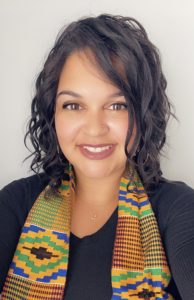
Dr. Tashelle Wright
Wright once considered a career in the neuroscience of aging, but opted to focus on public health equity after working with dementia patients in a long-term care home. “I didn’t see myself or my family members in the dementia literature,” she says. “The tools in the neuroscience lab I had access to weren’t designed for Black and Brown communities. And I wanted to make an impact at a community level after working at a state health department.
Wright earned a PhD from the University of California, Merced in August, where she studied the link between tobacco use and oral health disparities among Black, Latinx and Hmong peoples, among other public health equity issues.
At DLSPH, she will research COVID-19 disparities by race and ethnicity. Elucidating how historical injustices play into current problems around lack of trust and misinformation will be key.
“I’m trying to understand barriers around COVID-19 and how [Black communities] experience being part of control trials,” she says. ”I’ve never spoken to anyone who identifies as Black who has willingly participated in randomized control trials. I want to understand the barriers and facilitators to choosing to participate, and their thoughts about why they joined or why not. Trust is a huge part of that. I’ll also be looking at misinformation about COVID-19 to understand any fears or hesitancy. How do we address the misinformation and disseminate information that’s culturally sensitive and appropriate?”
As a discipline, public health seeks to influence groups of people, but many of the practices scholars try to understand are intensely personal. Cornel Grey is a sexual health expert who joined DLSPH July 1 to research how Black queer men perceive physical touch as a way of maintaining physical, mental and emotional wellbeing.
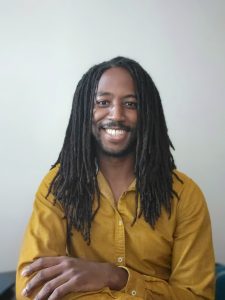
Cornel Grey
“Sex without condoms is seen as high-risk for Black men in particular,” he says. “But skin-to-skin contact between Black queer men, including sex, provides many health benefits. So how do we think through that? Sometimes the recommendations given to folks don’t account for the specific contexts that people live in. I’m interested in how people reconcile public health guidelines with their own circumstances.
So far at DLSPH, Grey has been working on Prof. Daniel Grace’s research team, looking at how COVID-19 – and its various restrictions, such as family bubbling — has affected gay men’s wellbeing in major Canadian cities.
He’ll continue that work, but also hopes to focus on larger issues around Black queer men and their relationships with public health systems and practices. “I’d like to look at access to care, but also to what extent health care professionals are able to reckon with the different ways that Black queer men live their lives.
“I’ve been trying to consider what it would look like for public health to consider Black queer men as something other than a problem,” says Grey, who grew up in Jamaica. “Based on what I’ve come across in the HIV literature, we need to manage or control how Black queer men have sex because we don’t want HIV spreading to the wider community. Is there a way to centre Black queer men’s experiences to ask what is needed to live a good life?”
Dr. Tegan Mosugu grew up in Nigeria, Ghana, U.K., and the U.S. As an undergraduate student at Duke University in North Carolina, Mosugu discovered global health as a program of study and was hooked. “I was drawn to health care but I did not want to be a physician. I liked the idea of deciding the best [health] strategy, or the best course of action or being able to mitigate the effects of budgetary gaps or constraints. As an African, [global health research] is an avenue for me to give back to communities that resonate with me, and it also enables me use my skills to improve outcomes,” he says.
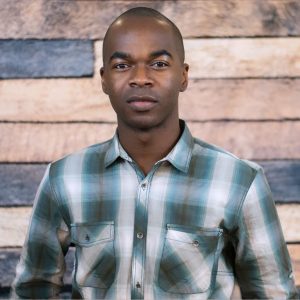
Dr. Tegan Mosugu
While in graduate school, Tegan worked professionally in global health and saw the importance of critical and topical research in shaping global health delivery. This motivated him to pursue a PhD in health policy at the University of Pittsburgh. His dissertation focused on evidence-based management approaches to HIV/ AIDS. “My research looked at how management perspectives can be juxtaposed—from organizations, stakeholders, practitioners and academia—to inform decision-making and strengthen management approaches to service delivery,” says Mosugu.
His postdoctoral fellowship will focus on Africa, examining the effectiveness of priority setting on population health, and factor in current circumstances and life in a post-pandemic world. Mosugu will seek to understand what is entailed in establishing a country’s public health priorities.
His goal is to influence health policy in Africa by informing decision-making and through public health research dissemination. He, too, is looking forward to learning how to become an independent researcher through the fellowship. “There’s more freedom in your scholarly pursuits. It’s the beginning of establishing expertise. That comes through knowledge, but also by getting feedback from your colleagues. I’m looking forward to joining the IHPME community.”
Three of DLSPH’s newest postdocs are part of the U of T Provost’s Postdoctoral Fellowship program, which supports scholars from underrepresented groups, particularly Black and Indigenous communities.
Dr. Paul Wankah originally hails from Cameroon, where he trained as a general practitioner and worked as a clinical researcher looking at blood abnormalities in people with HIV. He immigrated to Canada in 2014 and began a master’s degree in public health at the University of Sherbrooke in Montreal.
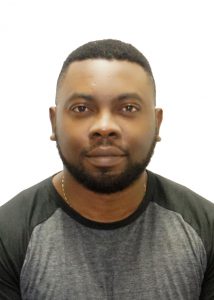
Dr. Paul Wankah
“What I was doing was integrated care for older adults—how to improve connectivity, coordination and collaboration between all the different actors and organizations that are involved in the continuum of care for older adults,” says Wankah.
His doctoral thesis, which he is also completing at the University of Sherbrooke, is a continuation of this work. Co-supervised by Dr. Jay Shaw, Wankah’s PhD research is a comparative study of the integration of care for older adults in Quebec and Ontario.
Wankah notes that through his master’s research, he began collaborating with Dr. Walter Wodchis, a professor at IHPME, who will supervise his postdoctoral studies. He will research the implementation of integrated care models via Ontario Health Teams. “This is a complex innovation that needs to work across professional and organizational boundaries,” says Wankah. “What are the systemic enablers and what are the policy barriers? I will try to understand the conditions in which to implement and sustain collaborative practices.”
Wankah is looking forward to understanding the outcomes of policy decisions based on complex factors. “I’m really interested in economic evaluations. I’m also interested in understanding policy drivers and other macro institutional forces that impact the way in which Ontario Health Teams are rolled out.”
Dr. Amy Shawanda’s passion for Indigenizing public health has roots in her family’s lived experiences with health care in Ontario.
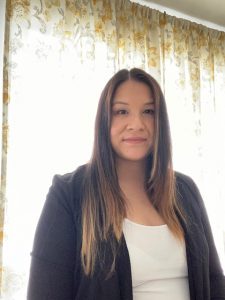
Dr. Amy Shawanda
“My aunt was dying and our family was very distraught when we arrived at the hospital in Sudbury to say our final goodbyes,” she recalls. “We went to the smudging room but it was locked. The security guard wouldn’t open the door or let me speak to a supervisor. I said, ‘You’re going to deny me access to prayer. He said, ‘That’s not what I’m doing.’ I said, ‘That’s what you’re doing – you just don’t know it.’”
The moment was traumatizing, but Shawanda used it to create positive change. Today, the door to the smudging room is unlocked and Shawanda made sure that going forward, the space would be kept free for Indigenous people. The experience sparked her interest in creating health and public health practices that successfully incorporate both Indigenous and Western practices.
“There’s a lot of discrimination and racism in our health care, whether it’s conscious and unconscious,” she says. “That’s the biggest challenge. A lot of unknowledgeable people look at our ways of healing as primitive, as though we don’t evolve. We need to educate doctors and nurses — they often carry these old ideologies they were taught.”
As part of a Master’s in Indigenous Relations, Shawanda observed the positive effect that smudging ceremony had on very distressed patients. Nurses were happy to help them access traditional care when they saw its effects. And when her own daughter was born in a hospital, she also found the nurse very accepting of the cedar bath ceremony. These experiences give her optimism that change can happen on a systemic level.
She went on to obtain a PhD at Trent University, where she explored Anishinaabe maternal teachings.
Shawanda became interested in DLSPH after Prof. Angela-Mashford Pringle invited her to submit a paper exploring how to incorporate dreams, and their important place in Anishinaabe culture, into academic research on Indigenous knowledge. Starting Nov. 1, Shawanda will continue her research under Mashford-Pringle’s supervision, looking at how traditional practices such as smudging can be incorporated into hospitals and other healthcare environments.
Dr. Cyndirela Chadambuka has always had a love of learning. After completing her undergraduate degree in social work at the University of Zimbabwe, Chadambuka moved to South Africa to pursue her master’s degree and PhD at the University of the Witwatersrand, in Johannesburg.
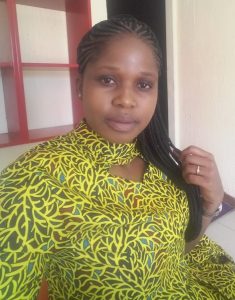
Dr. Cyndirela Chadambuka
She chose a doctoral program with stringent publishing obligations—one that is less popular with trainees because of its difficulty. She was required to graduate with four academic papers—one published, one in press, one accepted and one submitted. Chadambuka graduated with five published papers and two under review. “I don’t know how I did it,” she says, smiling.
Chadambuka will be joining DLSPH’s Institute of Health Policy, Management and Evaluation (IHPME) this Fall to focus on the impact of gender-based violence on the mental health and economic productivity of migrant women in Canada.
It’s an extension of her doctoral dissertation, in which Chadambuka looked at the experiences of women living in rural areas who faced intimate partner violence, and the influence of social norms on how this violence is promoted and carried out.
She became passionate about the issue while working with the organization Doctors Without Borders/Médecins Sans Frontières. “To us, [physical abuse] is a violation of rights, but to the victims it’s not; it’s part of marriage, it’s acceptable. That’s when the interest in this research area grew,” says Chadambuka.
Chadambuka says she eagerly anticipates being mentored by her supervisor, IHPME associate professor Dr. Beverley Essue, and honing the skills needed to become an independent researcher. “I want to be able to lead my own research projects, apply for my own grants, and also learn the policy landscape—how gender-based violence is dealt with in North America through public policy. Maybe one day I might be able to use the same knowledge here in Africa because this is something I’m really passionate about. I’m about passionate about women and protecting their rights.”